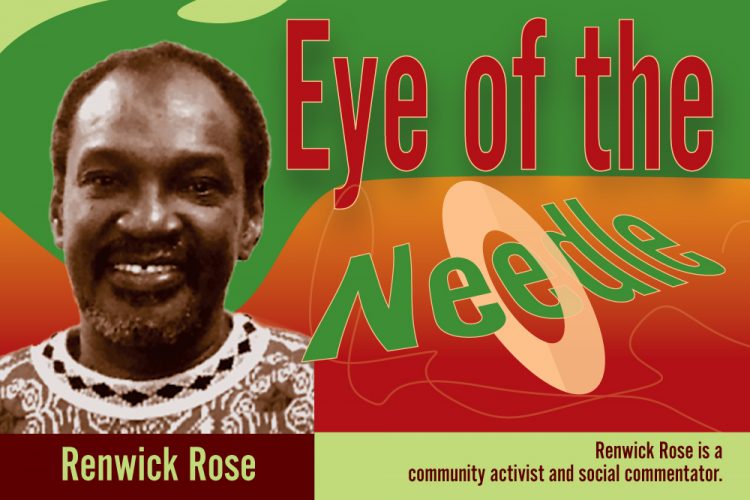Summit of Americas or Summit of Friends of America?

That is the pertinent question raised by Mexican President, Andres Manuel Lopez Obrador as he spoke to the media explaining his absence from the Summit of the Americas meeting being held in the US city of Los Angeles this week.
The question is not just a rhetorical one, for it follows in the wake of serious disagreement between the host country and the majority of the countries of the Americas over which countries should participate in the Summit. Breaking from the practice of the last two Summits, where all the countries of the hemisphere were invited, the US government this time unilaterally decided not to invite three hemispheric countries, Cuba, Venezuela and Nicaragua on the grounds that they are not, in US eyes, “democratic” countries.
This caused a storm among the countries of the region with prominent countries like Mexico, Argentina and even Brazil, a close ally of the USA, threatening to stay away. Caricom countries, historically close to the USA, also objected to the US exclusion plan, and even issued a statement last month insisting that they would not attend unless all countries were invited.
Faced with an embarrassing situation, the USA went into diplomatic overdrive dispatching envoys throughout the hemisphere and with President Biden himself making urgent phone calls to regional Heads of State and Government. In the long run, even though at time of writing, Wednesday, it was still not clear which Heads were in Los Angeles, there was either no show from countries such as Bolivia and St Vincent and the Grenadines, or, as in the case of Mexico and some other Latin American countries, representation at a lower level than President.
So even before it has formally begun, this Summit is like no other. The solidarity with the three non-invitees has exposed the selfish unilateralism of the USA and its disrespect for democratic governance practices. If you volunteer to host a meeting, that does not give you the right to determine the guest list. For instance, the same USA is host to the headquarters of the United Nations in New York. Each year the UN holds its General Assemblies there, but the USA cannot dictate to the U.N. which countries should attend.
It indicates a gross disrespect for the countries of the hemisphere, long considered the “backyard” of the USA. But those days are long past as the legendary Grenadian revolutionary Prime Minister, Maurice Bishop had reminded the northern behemoth in his famous “We are not in anybody’s backyard” speech in 1979.The USA still enforces its will on many countries in the region, but the hemisphere no longer marches in line to the US drumbeat.
The Summit is remarkable in a number of other ways as well. First, it is US interests which seem to be high on the agenda, not those which are of high priority for the millions of suffering people in the region. Thus, the USA is pulling out all the stops in an attempt to get the countries of the region to agree to its plan to curb migration. Yet it does not want to engage Cuba, Venezuela and Nicaragua, from which many illegal migrants originate, in a regional discussion on the problem.
The region is interested in finding common solutions to poverty, hunger and underdevelopment and how all countries can work towards common goals. It wants to see an end to “big stick” diplomacy and the politics of exclusion. Argentina and Mexico are among countries openly advocating against what the Mexican Foreign Minister described as the “inhumane embargo” by the USA against Cuba, while Argentina says it will use its presence at the Summit to be the spokesman for the Community of Latin American and Caribbean states on matters such as US exclusivity in the region.
A puzzling issue surrounding the Summit is its low-key treatment in the US and international media. Even up until Wednesday this week, the Summit had to take a back seat to local US matters and of course the war in Ukraine. Judging by press coverage, what happens in the rest of the hemisphere is not high on the US agenda, Where else in the region could this have happened in a host country for such a Summit?
Caricom, disappointing but understandable
Finally, the stand or non-stance of the Caribbean Community must be disappointing to those like me who believe in the sovereignty of the region. After brave early statements upholding principle and sovereignty, US pressures have brought the Caribbean to heel, and while it is clear that they do not support US exclusion of the three countries mentioned above, the Heads have agreed to disagree on attendance at the Summit.
It is still not clear which countries are represented at leadership level, though the usual suspects are sure to be there. After all, they were not ashamed to show up for Donald Trump, even when he kept them waiting like unwanted kin. Much as I disagree with their presence there, I must say that it is not unexpected.
In addition to fear of embarrassing the USA, the leaders also have an eye on their own electorate and the effect of possible US pressures on them. Our people are not like the Cuban people who are prepared to resist, the USA only has to issue travel advisories or hint at visa reductions and many of our people will turn on those governments which they believed “provoked America” into acting. Our collective low level of consciousness is at the root of this. Just think of how many prominent organizations of workers, business people, churches, women, youth, have issued statements of support for a boycott call on the “Summit like no other”? You see why our leaders so ‘fraid?
Renwick Rose is a community activist and social commentator.









